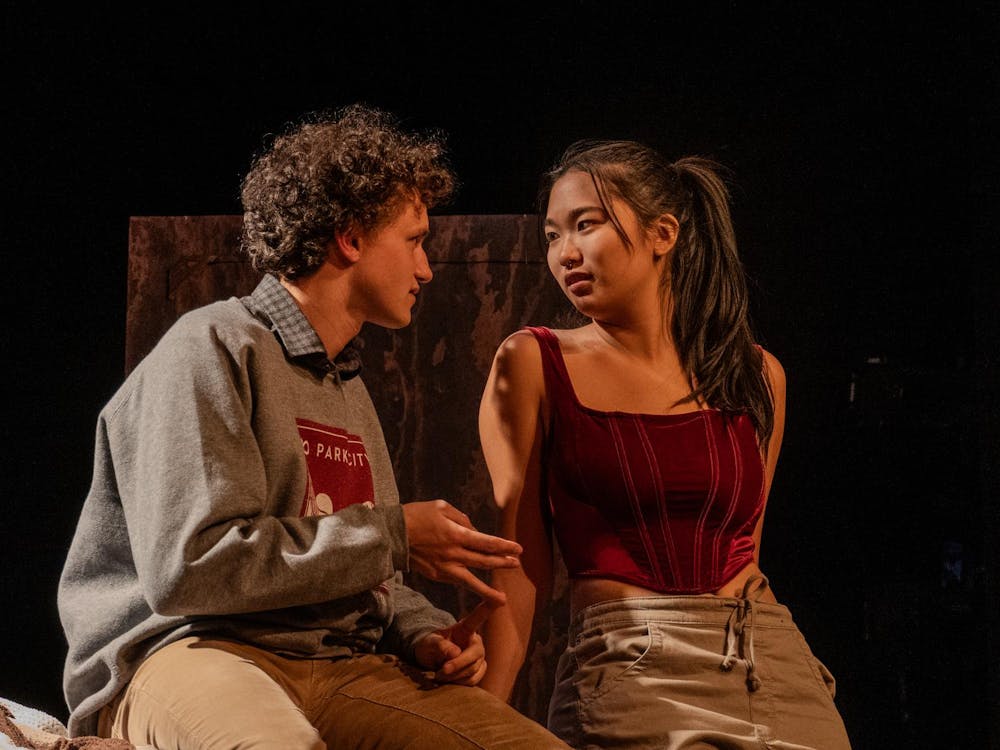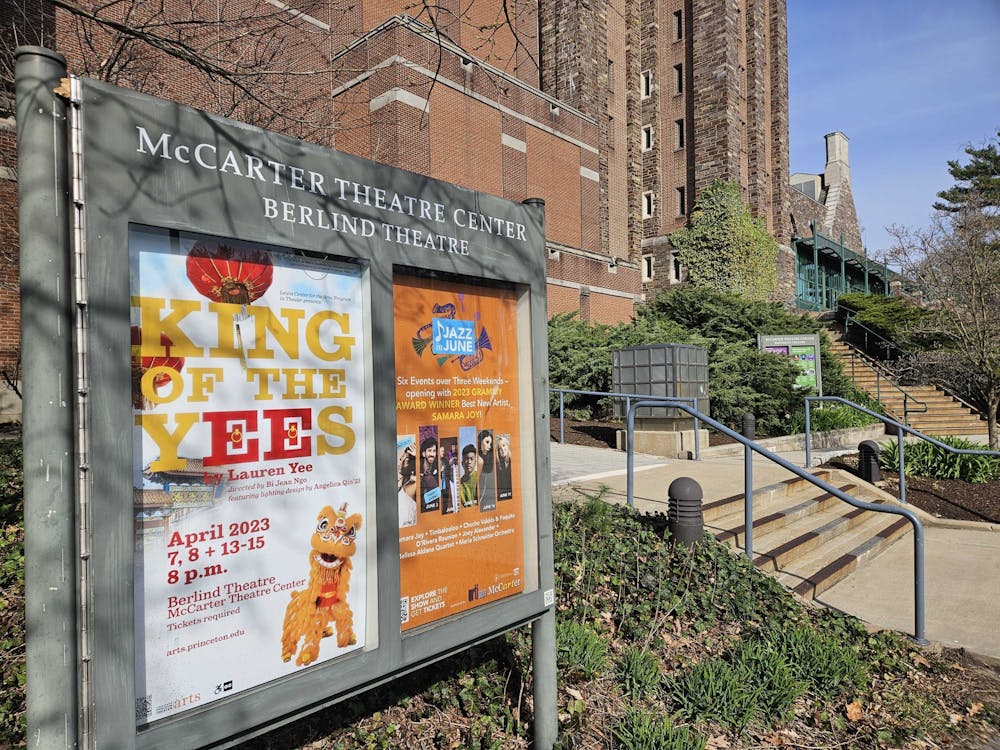“But how will this compare to the story you will hear tomorrow?” In their production of "When Dawn Breaks," Theatre Intime presents an immersive theatrical experience and adaptation of "One Thousand and One Arabian Nights," also known as "The Arabian Nights."
The frame storyconcerns a great king cuckolded by his wife, who loses trust in all women and resorts to a brutal routine to quench his lustful desire and longing for perverse justice. Marrying a young virgin each day and bedding her that night, the king orders that each one be executed in the morning before he marries the next.
Created and directed by Nico Krell ’18, the production focuses on the process by which Scheherazade comes to break the king’s cycle of intimate violence. Exploring the intersection of violence and sex, "When Dawn Breaks"questions whether the audience is complicit in the ancient tale.
The performance begins in Theatre Intime’s performance venue, Murray Theatre, where we find the queen (Julia Mosby '19) 'in coitu' with her brother-in-law. The king Shahrayr(Tom Dowling GS)soon enters the picture, violently breaking the two apart and presumably ordering their executions, as indicated by darkening lights and theatrical effects.
The experience quickly expands into the rest of the space, using the Charrier Room, dressing rooms and shop as playing spaces. Audience members are encouraged to follow the actors and move around the space, giving them autonomy to choose which actors to follow and which scenes to watch.
Multiple fights pepper the performance. Hands turn into claws and, in one fight, it seems as if Shah Zaman (Jake Hamel '18)goes in to kiss another before he begins to violently attack the man. Following this fight, which is accompanied by intense string music and blinding red light, Zaman is imprisoned in the booth at the back of the theater. He returns to the ground and walks across the chairs to return to the stage, where two actors collapse back-to-back and soon begin breathing in unison. Heads intertwining, it becomes clear that there is artistry in their movement and, five minutes later, the two use each other as support to stand up.
In another scene, actors put on a performance for the king, telling an eerily familiar story of a royal man who kills a young virgin at her marriage ceremony. A caricatured ballet, the performance is retold repetitively, mirroring the larger story of the king’s bedding one night and killing the next morning.
While Krell’s telling fails to emphasize the fact that Scheherazade actually volunteers to marry the king and presumably meet her death, in "When Dawn Breaks," the process by which the king prepares for his night with the storyteller is nonetheless entrancing. We witness the king, after savagely eating an orange, washing and dressing himself. Scheherazade’s part here, in contrast, calls for the audience’s sympathy. As she enters the king’s bed chamber, we hear a woman – presumably a family member – wailing.
In one of the more remarkable scenes in a dressing room, an actress reveals drawers full of pictures of young women, women the king presumably married, bedded and then killed. While making the pictures into origami butterflies, the character played by Anna Zabel '19 explains that a butterfly, despite being a “weightless ooze of meaningless parts” during metamorphosis, despite its entire body being ripped apart, “never really died.” Instead, “when the butterfly flaps its wings again, it becomes part of a story that never seems to end.”
"When Dawn Breaks" has its weak points. Though the interactive and immersive elements of the production are appealing, and each audience member can move around as he or she chooses, one gets a unique selection and sequence of scenes, making for a confusing, muddled melody of scenes, meaning no audience member leaves with a cohesive story. Music accompanying scenes often competes with a script that is, at times, sloppily constructed and the mixing of the modern and the ancient is off-putting.
Nonetheless, the magic is in the details. Small sketches of an evil-warding eye can be found throughout the playing space and, in some rooms, fresh flowers add a simple, but effective, level of sensory experience. Other details – one character’s persistent smoking habit and another’s hand make-up – contribute to the production as well.
Despite the pitfalls of such an immersive experience, all in all, "When Dawn Breaks" excellently reveals the horrifying intersection of violence and sex in "The Arabian Nights" and questions the audience’s acceptance of the ancient tale at face value, finishing with the compelling and convicting question, “But how will this compare to the story you will hear tomorrow?”

Pros: immersive theatrical experience, beauty in details and movement
Cons: no cohesive story, poorly incorporated music, weak script at points
Paws: 3.5/5








